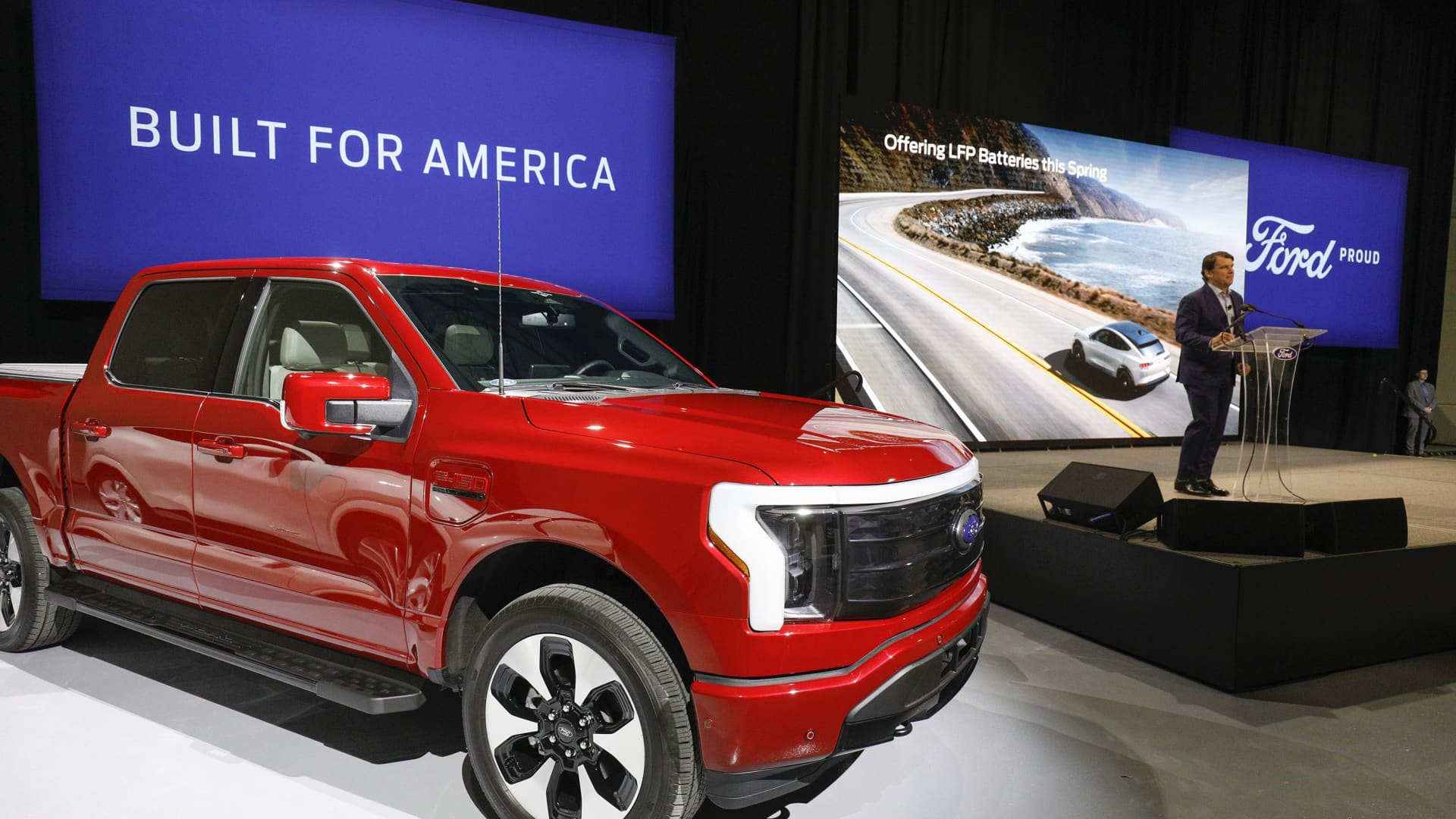Ford Motor is scaling back plans for a $3.5 billion battery plant in Michigan as consumers move to electric vehicles more slowly than expected, labor costs rise and the company moves to cut costs.
Ford executives including CEO Jim Farley and Chair Bill Ford initially announced the facility in February. It quickly became a political target due to its connection to Chinese battery manufacturer Contemporary Amperex Technology Co., or CATL. The plant is a wholly-owned Ford subsidiary, but the U.S. automaker is licensing technology from CATL to produce new lithium iron phosphate, or LFP, batteries for EVs.
Ford said Tuesday that it is cutting production capacity by roughly 43% to 20 gigawatt hours per year and reducing expected employment from 2,500 jobs to 1,700 jobs. The company declined to disclose how much less it would invest in the plant. Based on the reduced capacity, it would still be about a $2 billion investment.
The decision adds to a recent retreat from EVs by automakers globally. Demand for the vehicles is lower than expected due to higher costs and challenges with supply chains and battery technologies, among other issues.
Turns out when nobody has any money, spending 30+ grand on a new car isn’t at the top of anyone’s priority list.
30? I wish! It’s more like 60+ for one of their EVs.
Yeah no shit. They never learn if you don’t pay the lowest workers a living wage then they can’t buy your goods and you go out of business. 40 plus years of Reganomic and they still don’t learn.
NY Times did a piece on this recently.
A lot of it has to do with how the incentives are structured. Americans can get a tax break on EVs that were made with a certain percentage of parts manufactured in the US. Many models don’t qualify yet because manufacturers haven’t got their supply chains completely oriented around the incentives such that they meet those percentages. On the other hand, the incentives are pushing manufacturers to increase EV supply. However, there isn’t the demand there yet to meet it due to lack of tax breaks.
Leased EVs on the other hand qualify for the tax break even without having a percentage of parts made in the US. And, there has been an uptick in leases for EVs. So, it may be fair to say that once the manufacturers start meeting US made parts quotas, we will see an increase in EV purchases as the tax breaks kick in. Supply is just a head of demand at this point.
There are other factors that will help too, like building out charging infrastructure, etc.
How do the tax rebates work on a lease?
Thank you for putting this here. I learned this the hard way after buying a poorly designed (for battery life) Nissan leaf. Also want to add that new battery tech is not too far in the future that is going to make the current batteries look pitiful. I’m not wildly savvy on that topic and even I know this. So any current models may lose support
Maybe they should train their dealerships to fucking sell them. Many outright refuse.
deleted by creator
No fucking shit demand didn’t meet their hopes, NOBODY HAS ANY GODDAMN MONEY
These elitist capitalist pigs are so fucking disconnected they don’t have a single clue what life is like for the rest





